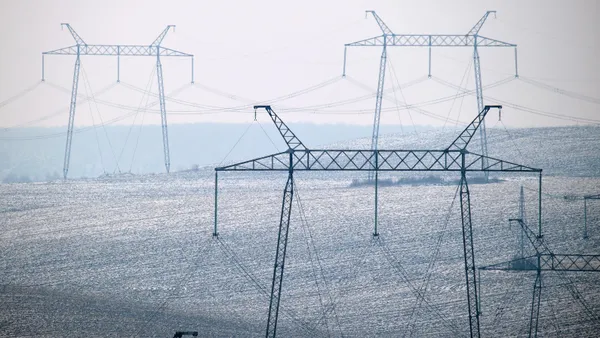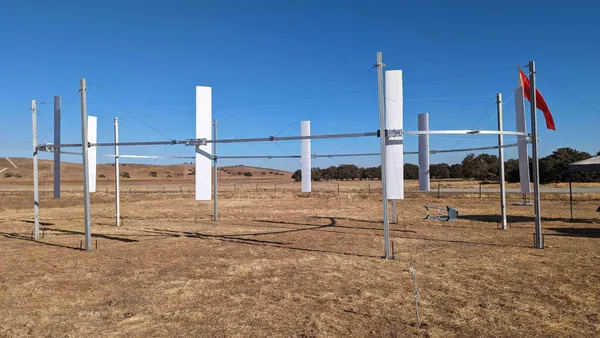Dive Brief:
- The New York State Public Service Commission on Thursday approved an alternative to net metering for residential and small commercial customers, laying out new monthly fees and rules but delaying implementation until 2022 due to the impacts of COVID-19.
- The new system will charge solar customers between $0.69 and $1.09 per kW based on the utility, customer class and compensation option. Existing net energy metering customers will be unaffected by the change.
- The decision will ease cost shifts identified in a December PSC white paper, but does not wholly satisfy the solar industry or utility sector. New York power companies wanted to see net metering replaced with charges based on customer demand, while solar companies say the per-kilowatt charge could slow market growth and reduce the benefits of installing panels.
Dive Insight:
While neither utilities nor solar companies got the result they wanted, both say the PSC's order will allow the market to grow — particularly following a slowdown in distributed generation installations due to COVID-19.
The order notes that new distributed generation business could decline by up to 75% this year as a result of the pandemic and the New York solar industry may have lost more than 9,000 jobs in June alone. New York's Climate Leadership and Community Protection Act, passed in 2019, set a goal for New York to reach 6 GW of distributed solar capacity by 2025.
The Solar Energy Industries Association (SEIA) and other clean energy groups forecast New York installation activity for this year to be at least 48% lower than 2019, with the residential market predicted to be 59% below 2019 installations.
"The timing of the order is important to keep in mind," David Gahl, SEIA senior director of state affairs for the Northeast, told Utility Dive. Delaying implementation of the new system "provides a good runway for residential solar projects and allows companies hardest hit to get back on their feet."
The PSC's white paper had recommended the net metering alternative go into effect in 2021.
"The order will help New York State's solar market continue to grow, providing environmental and economic benefits and helping the state meet its climate goals," Consolidated Edison said in a statement.
Edison will charge the highest Customer Benefit Contribution (CBC) of the state's utilities, at $1.09/kW. New York State Electric & Gas is expected to have the lowest.
The new monthly fees will "better align residential rates to ensure that rooftop solar continues to provide the greatest benefit to customers, the utility system, and society," PSC Chair John Rhodes said in a statement.
The order calls the CBC "modest" in relation to monthly cost shifts from on-site net metering solar adopters, which the white paper estimated from $3/kW to $7/kW.
Net metering has successfully incentivized the growth of distributed generation in New York "by its simple design and familiarity," according to the PSC's order. Retaining the system, with modifications, "is the best means currently available to support continued solar development while beginning to address cost shifts and improve incentives."
The new rules affect mass market and large commercial rooftop solar systems under 750 kW.
New York is not the only state making changes to how solar customers are compensated. Net energy metering has been under review around the country as utilities seek to more accurately quantify the system benefits of distributed generation. Hawaii eliminated net energy metering in October 2015, replacing it with lower remuneration rates.
Gahl said New York's new system was consistent with proposals that had been considered in Massachusetts, but which were ultimately not adopted. "It will be interesting to see whether other states follow suit in an adjustment to net metering like this," he said.













